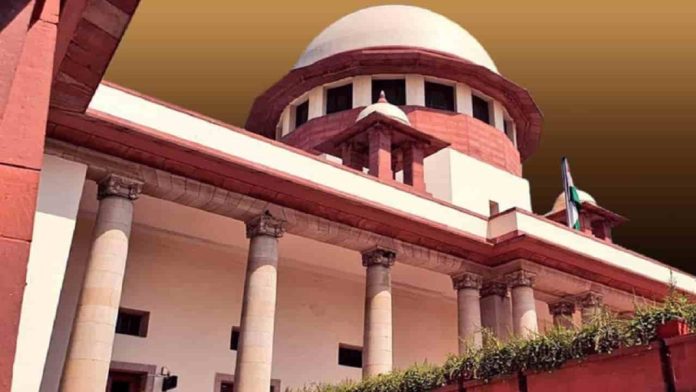The Supreme Court is likely to hear on March 11, a petition filed by the State Bank of India (SBI) seeking an extension of time till June 30 to furnish buyers’ data regarding electoral bonds to the Election Commission of India.
While striking down the electoral bonds scheme on February 15 this year, the Apex Court had directed SBI to furnish the details to the Election Commission of India by March 6.
The Constitution Bench had further directed the ECI to publish the information shared by SBI on its official website by March 13.
On March 4, SBI lodged an application in the top court of the country, submitting that the retrieval of information from each silo and the procedure of matching the information of one silo to that of the other would be a time-consuming exercise.
It explained that the details were sorted separately, some of the details like the number of bonds were stored digitally, while other details like the name of the purchaser, KYC were stored physically.
The application underlined that the purpose of storing all details was to ascertain that it cannot be gathered easily to achieve the object of the scheme. The apex court had earlier directed the SBI to disclose details like the date of encashment and denomination of the electoral bonds.
In a related development on March 7, the Association for Democratic Reforms (ADR) filed an application in the Supreme Court alleging contempt of court after SBI failed to disclose the data by the prescribed deadline of March 6.
The lead petitioner in the electoral bonds case alleged that SBI violated the Apex Court’s directions. It noted that despite the availability of data, SBI has failed to act as directed by the court. The petition sought the court’s direction for disclosure of bond data by SBI forthwith.
A five-judge Constitution Bench had struck down the electoral bond scheme on February 15, terming it to be unconstitutional. Pronouncing its verdict, the court directed the State Bank of India to cease issuing electoral bonds with immediate effect.
The apex court ordered SBI to furnish the Election Commission of India with detailed records of all electoral bond contributions received by various political parties from the scheme’s interim order in 2019 up to the present date. The bench led by CJI DY Chandrachud observed that the SBI shall submit the details to the Election Commission in three weeks and the ECI shall publish these details on their website.
Introduced in 2018, the electoral bonds scheme was intended to increase transparency in political donations. Nonetheless, critics argued that the anonymity provided by the scheme fostered corruption and upset the level playing field among political parties.


